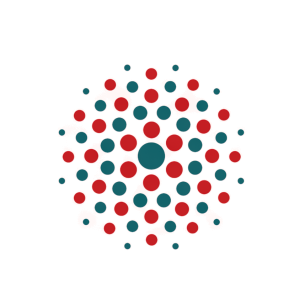Allogene Therapeutics Announces Publication of Durable Response Data from Phase 1 ALPHA/ALPHA2 Trials of the Allogeneic CAR T Cemacabtagene Ansegedleucel/ALLO-501 in Relapsed/Refractory Large B-Cell Lymphoma in the Journal of Clinical Oncology
Rhea-AI Summary
Allogene Therapeutics published Phase 1 ALPHA/ALPHA2 trial results for cemacabtagene ansegedleucel (cema-cel) in treating relapsed/refractory large B-cell lymphoma. The study demonstrated significant efficacy with 58% overall response rate and 42% complete response rate across all patients, improving to 67% and 58% respectively with the pivotal study regimen.
Key highlights include a median duration of response of 23.1 months among complete responders, with median overall survival not reached. The treatment showed a manageable safety profile with no graft-versus-host disease, neurotoxicity syndrome, or high-grade cytokine release syndrome. Notably, the median time to treatment was just two days from enrollment.
The study revealed 100% complete response rates in patients with low disease burden, supporting the ongoing ALPHA3 trial which evaluates cema-cel as a first-line consolidation therapy. This represents the largest dataset of LBCL patients treated with an allogeneic CAR T product, with minimum two-year follow-up.
Positive
- 58% overall response rate and 42% complete response rate across all patients
- 67% overall response rate and 58% complete response rate with pivotal study regimen
- 23.1 months median duration of response for complete responders
- 100% complete response rate in patients with low tumor burden
- Rapid treatment delivery with median 2-day time to treatment
- No serious adverse events like GvHD, ICANS, or high-grade CRS
Negative
- patient sample size of 33 LBCL patients in pivotal regimen group
News Market Reaction 1 Alert
On the day this news was published, ALLO gained 44.68%, reflecting a significant positive market reaction.
Data tracked by StockTitan Argus on the day of publication.
- Efficacy Comparable to Approved Autologous CD19 CAR Ts: Achieved Overall Response (ORR) and Complete Response (CR) Rates of
58% and42% Across the Study and67% and58% with Pivotal Study Regimen, Respectively - Durability of Response: Among Patients Who Achieved CR, Median Duration of Response (DOR) of 23.1 Months and Median Overall Survival (OS) Not Reached
- Manageable Safety Profile Consistent with Approved Autologous CD19 CAR T: No Graft-versus-Host Disease (GvHD), Immune Effector Cell-Associated Neurotoxicity Syndrome (ICANS), or High-Grade Cytokine Release Syndrome (CRS)
- On-Demand Treatment: Median Time to Treatment Two Days from Enrollment
- Foundation for Cema-Cel in ALPHA3 Trial in First Line (1L) Consolidation: Achieved
100% CR in Patients with Low Disease Burden
SOUTH SAN FRANCISCO, Calif., Feb. 13, 2025 (GLOBE NEWSWIRE) -- Allogene Therapeutics, Inc. (Nasdaq: ALLO), a clinical-stage biotechnology company pioneering the development of allogeneic CAR T (AlloCAR T™) products for cancer and autoimmune disease, today announced the publication of data from its Phase 1 ALPHA and ALPHA2 clinical studies of cemacabtagene ansegedleucel (cema-cel; formerly ALLO-501/A) in relapsed/refractory (R/R) large B-cell lymphoma (LBCL) as a Rapid Communication in the Journal of Clinical Oncology. These results represent the largest dataset of LBCL patients treated with an allogeneic CAR T product and, with a minimum of two years of follow-up, the longest follow-up to date.
“Publication of the Phase 1 ALPHA/ALPHA2 trials in R/R LBCL mark a landmark moment for the field. These findings represent the most robust allogeneic CAR T experience yet presented and show, for the first time, that an “off-the-shelf” CAR T can induce durable complete remissions in a large fraction of patients with heavily pretreated LBCL,” said Frederick L. Locke, MD, Chair of the Department of Blood and Marrow Transplant and Cellular Immunotherapy at Moffitt Cancer Center and Research Institute (Tampa, FL). “These peer-reviewed results highlight how cema-cel development is on the cutting edge of lymphoma care, particularly with the ALPHA3 trial targeting only those patients who are MRD positive at the end of first-line treatment. If successful, ALPHA3 and cema-cel could transform the treatment paradigm for newly diagnosed patients.”
"With multiple patients in ongoing complete remissions beyond four years, the lingering question of whether an allogeneic CAR T could deliver durable responses has now been answered," said Zachary Roberts, M.D., Ph.D., Executive Vice President, Research and Development and Chief Medical Officer of Allogene. "Furthermore, these results provide potent evidence supporting the use of CAR T in patients with low disease burden and the unique opportunity for the ALPHA3 trial to achieve something novel in this disease – predict and intervene before relapse. Opportunities to redefine the standard of care in oncology are rare, but if successful, ALPHA3 has the potential to achieve precisely that."
Key Findings from the Publication
The ALPHA/ALPHA2 studies were single-arm, multicenter, open-label, Phase 1 trials. As of the data cutoff date (September 26, 2024), 87 heavily pretreated patients with R/R non-Hodgkin lymphoma (NHL) were treated in the ALPHA/ALPHA2 studies between May 2019 and September 2022. In total, 33 CD19 CAR T-naive patients with R/R LBCL received cema-cel/ALLO-501 manufactured with the process selected for use in pivotal studies and were the focus of this publication.
- Overall Response Rate (ORR) and Complete Response (CR) Rate: ORR and CR rates in the ALPHA/ALPHA2 trials were consistent with those observed with approved autologous CD19 CAR T cell products for patients with R/R LBCL after two or more lines of systemic therapy. All treatment regimens studied demonstrated clinical benefit. The selected Phase 2 regimen (fludarabine/cyclophosphamide lymphodepletion with 90 mg of ALLO-647 (FCA90) followed by a single dose of CAR+ cells) yielded the highest ORR and CR of
67% and58% , respectively. - Durability of Response (DOR): Patients who achieved a CR had excellent outcomes with a median DOR, PFS (progression free survival) and OS of 23.1 months, 24 months, and not reached, respectively. For patients receiving the selected Phase 2 regimen, median DOR was 23.1 months and median OS was not reached.
- Safety Profile: The overall safety profile, including incidence of cytopenias and infections, was manageable and consistent with that of approved autologous CD19 CAR T cell therapies. There were no dose-limiting toxicities, graft-versus-host disease (GvHD), immune effector cell-associated neurotoxicity syndrome (ICANS), or high-grade cytokine release syndrome (CRS). The most common any-grade treatment emergent adverse events (TEAE) (≥
25% ) were neutropenia (85% ), anemia (67% ), thrombocytopenia (58% ), infusion-related reactions (IRRs;58% ), fatigue (52% ), and pyrexia (49% ), nausea (39% ), lymphopenia (36% ), hypotension (36% ), peripheral edema (33% ), decreased white blood cell count (30% ), CMV reactivation (30% ), decreased appetite (30% ), chills (30% ), and hypoxia (27% ). - Time to Treatment: The median time to start of treatment was two days from study enrollment. In contrast, autologous CAR T cell products require wait times often longer than 1 month despite incremental advancements in manufacturing and supply chains.
Potential in Low Disease Burden Settings
A growing body of evidence indicates that treatment with CAR T at times when the disease burden is low leads to improved safety and efficacy outcomes and this study reported similar findings. Among patients with baseline tumor burden <1000 mm² or normal lactate dehydrogenase (LDH) levels prior to treatment, a blood test that indicates low disease activity, the CR rate was
Foundation for the ALPHA3 Trial
These results serve as a foundation for the ongoing ALPHA3 trial, which is evaluating cema-cel as a consolidation therapy in LBCL patients who are in remission following 1L treatment but remain positive for minimal residual disease (MRD) as detected by an ultrasensitive ctDNA based blood test, using Foresight Diagnostics’ investigational CLARITY™ powered by PhasED-Seq™. These patients have extremely low disease burden, a key subgroup who demonstrated excellent disease outcomes in the ALPHA/ALPHA2 trials.
The groundbreaking randomized controlled ALPHA3 trial, initiated in June 2024, is the first to evaluate CAR T treatment as part of 1L consolidation treatment regimen for LBCL patients who achieve remission but test positive for MRD following initial therapy. The ALPHA3 trial is designed to predict and intervene before relapse. Cema-cel is administered only to patients at high risk for relapse as a one-time consolidation dose before disease recurs.
About Cemacabtagene Ansegedleucel (cema-cel)
Cemacabtagene ansegedleucel, or cema-cel, is a next generation anti-CD19 AlloCAR T™ investigational product for the treatment of large B cell lymphoma (LBCL). In June 2022, the U.S. Food and Drug Administration granted Regenerative Medicine Advanced Therapy (RMAT) designation to cema-cel in r/r LBCL. The ALPHA3 pivotal Phase 2 trial in first line (1L) consolidation for the treatment of LBCL launched in June 2024. Allogene has oncology rights to cema-cel in the US, EU and UK with options for rights in China and Japan.
About the ALPHA3 Trial
Over 60,000 patients are expected to be treated for LBCL annually in the US, the EU and the UK. While first line (1L) R-CHOP or other chemoimmunotherapy is effective for most patients, approximately
About Allogene Therapeutics
Allogene Therapeutics, with headquarters in South San Francisco, is a clinical-stage biotechnology company pioneering the development of allogeneic chimeric antigen receptor T cell (AlloCAR T™) products for cancer and autoimmune disease. Led by a management team with significant experience in cell therapy, Allogene is developing a pipeline of “off-the-shelf” CAR T cell product candidates with the goal of delivering readily available cell therapy on-demand, more reliably, and at greater scale to more patients. For more information, please visit www.allogene.com, and follow Allogene Therapeutics on X and LinkedIn.
Cautionary Note on Forward-Looking Statements for Allogene
This press release contains forward-looking statements for purposes of the safe harbor provisions of the Private Securities Litigation Reform Act of 1995. This press release may, in some cases, use terms such as “develop,” “potential,” “likely to,” “expect,” “can,” “see if,” “positioning,” “become,” “may,” “could,” “indicates,” “leads to,” “supports,” “promising,” “designed to,” “predict,” or “will,” including alternative forms thereof, or other words that convey uncertainty of future events or outcomes to identify these forward-looking statements. Forward-looking statements include statements regarding intentions, beliefs, projections, outlook, analyses or current expectations concerning, among other things: ALPHA3 being a pivotal trial and the extent to which it will support regulatory approval of cema-cel; the potential for the ALPHA3 trial and an investigational minimal residual disease test to identify patients with LBCL who are likely to relapse following standard 1L treatment; the potential for cema-cel to become the standard “7th cycle” of frontline treatment; the potential for cema-cel to have comparable efficacy to autologous CD19 CAR Ts; the potential for cemal-cel to have a manageable safety profile consistent with approved autologous CD19 CAR T; the potential for an off-the-shelf CAR T to induce durable complete remissions in a large fraction of patients with LBCL; that ALPHA3 and cema-cel could fundamentally alter the treatment paradigm for newly diagnosed patients; the design of the ALPHA3 trial and expected benefits therefrom; the potential for ALPHA3 trial to predict and intervene before relapse and establish a new standard of first-line LBCL treatment; that cema-cel could be a promising therapeutic option for patients with MRD; that cema-cel can be administered immediately upon discovery of MRD following six cycles of R-CHOP or other chemoimmunotherapy; the timing for completion of ALPHA3 enrollment or cema-cel BLA submission; the incidence of LBCL including the extent to which patients will relapse and require subsequent treatment; the potential for our product candidates to be approved; the potential benefits of the ALPHA3 trial and of AlloCAR T™ products; that treatment with CAR T at times when the disease burden is low leads to improved safety and efficacy outcomes; cema-cel’s safety profile; our ability to deliver cell therapy on-demand, more reliably, and at greater scale to more patients. Various factors may cause material differences between Allogene’s expectations and actual results, including, risks and uncertainties related to: the limited nature of our Phase 1 data from the ALPHA/ALPHA2 trial and the extent to which such data may or may not be validated in the ALPHA3 trial and any future clinical trials; the ability and extent that cema-cel will be administered only to patients at high risk for relapse as a one-time consolidation dose before disease recurrence; the extent to which the Food and Drug Administration disagrees with our clinical or regulatory plans or the import of our clinical results, which could cause future delays to our clinical trials or require additional clinical trials; we may encounter difficulties enrolling patients in our clinical trials; we may not be able to demonstrate the safety and efficacy of our product candidates in our clinical trials, which could prevent or delay regulatory approval and commercialization; and challenges with manufacturing or optimizing manufacturing of our product candidates. These and other risks are discussed in greater detail in Allogene’s filings with the Securities and Exchange Commission (SEC), including without limitation under the “Risk Factors” heading in its Quarterly Report on Form 10-Q for the quarter ended September 30, 2024. Any forward-looking statements that are made in this press release speak only as of the date of this press release. Allogene assumes no obligation to update the forward-looking statements whether as a result of new information, future events or otherwise, after the date of this press release.
AlloCAR T™ is a trademark of Allogene Therapeutics, Inc.
CLARITY™ and PhasED-Seq™ are trademarks of Foresight Diagnostics.
Allogene’s investigational AlloCAR T™ oncology products utilize Cellectis technologies. These anti-CD19 products are developed based on an exclusive license granted by Cellectis to Servier. Servier, which has an exclusive license to the anti-CD19 AlloCAR T™ investigational products from Cellectis, has granted Allogene exclusive rights to these products in the U.S., all EU Member States and the United Kingdom.
Allogene Media/Investor Contact:
Christine Cassiano
EVP, Chief Corporate Affairs & Brand Strategy Officer
Christine.Cassiano@allogene.com










